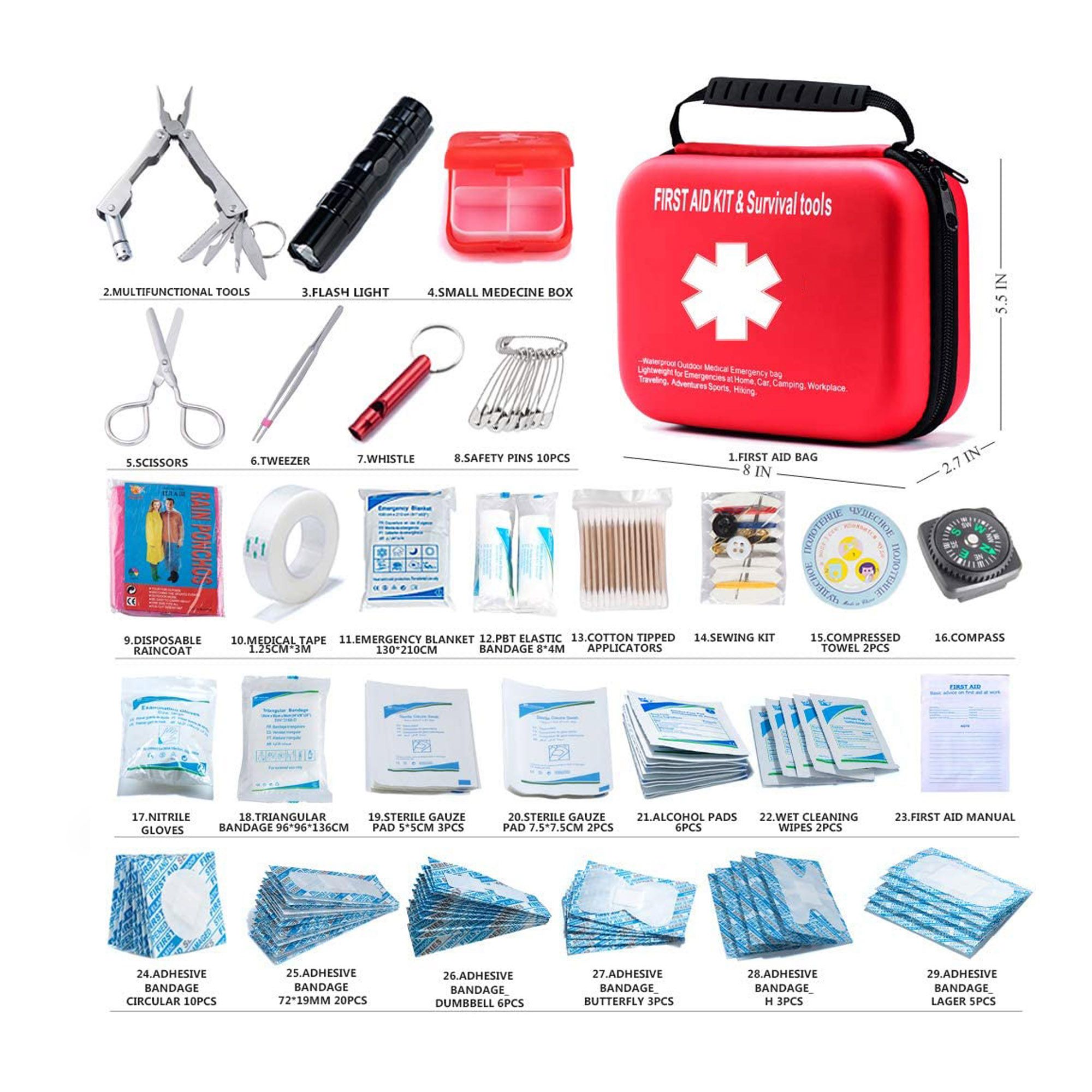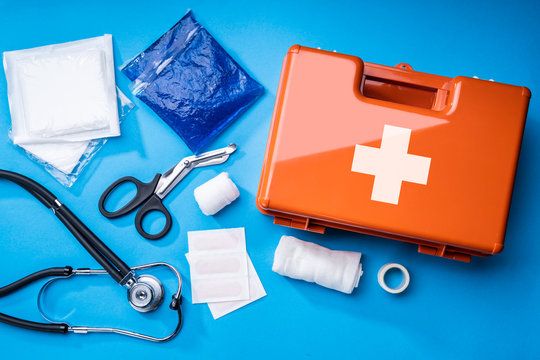
GET A QUOTE
How to Pack an IFAK: Essential First-Aid Kit List and Tips
When it comes to emergency preparedness, having a well-packed Individual First Aid Kit (IFAK) can make all the difference in a critical situation. Whether you're a first responder, military personnel, or an outdoor enthusiast, knowing how to pack an IFAK is essential. In this article, we'll guide you through the process, focusing on the crucial first-aid kit list and offering tips to ensure your IFAK is both comprehensive and compact.
What is an IFAK and Why is it Important?
An IFAK, or Individual First Aid Kit, is a compact and portable kit designed to provide immediate medical care in emergency situations. Unlike a standard first-aid kit, an IFAK is typically more specialized, containing items specifically chosen to treat traumatic injuries.
The Importance of Packing the Right Items
The effectiveness of an IFAK depends largely on the items you include. An IFAK is usually used in high-pressure situations where time is of the essence, so it's vital that your kit is packed with the right items and organized for quick access.
Essential First-Aid Kit List for Your IFAK
When creating your first-aid kit list for an IFAK, it's important to consider the types of injuries you might encounter. While the exact contents can vary based on your needs, here are some essential items that should be included:
Trauma Shears
A good pair of trauma shears is a must-have for any IFAK. These are used to quickly cut through clothing, bandages, or other materials that might obstruct access to an injury.
Tourniquet
A high-quality tourniquet is one of the most critical components of an IFAK. It is used to stop severe bleeding from a limb, which can be life-saving in cases of traumatic injury. Make sure the tourniquet is easily accessible and simple to apply with one hand.
Hemostatic Agent
Hemostatic agents, such as QuikClot or Celox, are included in many IFAKs to help control severe bleeding. These agents work by promoting rapid blood clotting, which is crucial when dealing with deep wounds.
Compression Bandages
A compression bandage, also known as an Israeli bandage, is essential for stopping bleeding and securing a wound. These bandages are designed to apply pressure directly to the wound, reducing blood loss.
Chest Seal
Chest seals are used to treat open chest wounds, such as those caused by gunshots or stab wounds. These seals prevent air from entering the chest cavity, which can cause a collapsed lung (pneumothorax).
Nasopharyngeal Airway (NPA)
An NPA is used to secure an airway in patients who are unconscious or unable to maintain their airway on their own. It's important to include lubricant with the NPA to aid in insertion.
Gloves
Always include a pair of medical-grade gloves in your IFAK to protect yourself and the patient from infection. Nitrile gloves are recommended as they are durable and provide a good fit.
Emergency Blanket
An emergency blanket is a lightweight, compact item that can help prevent hypothermia in patients who are in shock or exposed to cold environments.
Antiseptic Wipes and Adhesive Bandages
While an IFAK focuses on treating severe injuries, it's still a good idea to include basic first-aid items like antiseptic wipes and adhesive bandages for treating minor cuts and abrasions.
How to Pack an IFAK for Maximum Efficiency
Packing an IFAK is not just about what you include, but how you organize it. Here are some tips for packing your IFAK efficiently:
Prioritize Accessibility
In an emergency, seconds count. Arrange your IFAK so that the most critical items—such as the tourniquet, trauma shears, and hemostatic agent—are the easiest to reach. Consider using elastic loops, pouches, and Velcro strips to keep these items secure yet accessible.
Use Modular Organization
Many IFAKs come with modular pouches or compartments, which can be used to organize items by type. For example, keep all wound care items in one section and airway management tools in another. This modular approach can help you find what you need quickly in a high-stress situation.
Regularly Inspect and Update Your IFAK
Your IFAK should be regularly inspected to ensure that all items are in good condition and that nothing is expired. It's also a good idea to update the contents of your IFAK based on your specific needs and experiences. For instance, if you're heading into a particularly cold environment, you might add extra emergency blankets or hand warmers.
Keep It Compact
An IFAK is meant to be carried with you at all times, so it's important to keep it as compact as possible. Choose items that are lightweight and multipurpose whenever possible. Vacuum-sealed packaging can also help reduce the size of bulky items like gauze and bandages.
Common Mistakes to Avoid When Packing an IFAK
Even with the best intentions, it's easy to make mistakes when packing an IFAK. Here are some common pitfalls to avoid:
Overpacking
While it might be tempting to include everything you can think of, overpacking can make your IFAK bulky and difficult to carry. Focus on the essentials and avoid adding unnecessary items.
Neglecting Personalization
Your IFAK should be tailored to your specific needs. For example, if you have a known medical condition like asthma or severe allergies, be sure to include your prescribed medications, such as an inhaler or EpiPen.
Forgetting to Train
Having a well-packed IFAK is only part of the equation. You must also know how to use every item in your kit. Regularly practice using your IFAK items so that you can respond effectively in an emergency.
Conclusion
Packing an IFAK requires careful consideration of both the items you include and how they are organized. By following a detailed first-aid kit list and avoiding common mistakes, you can ensure that your IFAK is both efficient and effective in any emergency.
For those seeking high-quality first aid supplies, RISEN Medical offers a wide range of products designed for optimal performance in critical situations. Whether you’re assembling your first IFAK or updating an existing kit, RISEN Medical provides reliable, durable items that meet the highest standards of care. Equip yourself with the best, and be prepared for whatever challenges you may face.


